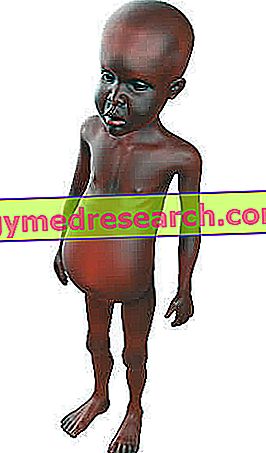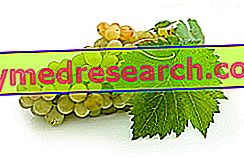Proteins and Amino Acids
General information on proteins
Proteins are polymeric chains formed by the union of numerous amino acids, joined in sequence by bonds called peptides.

Proteins perform many functions which are nothing short of indispensable, so much so that the human body contains up to 12-15% of its weight.
The most important functions of proteins are: plastic (make up tissues), bioregulator (enzymes), hormonal, neurotransmitters, membrane channels, blood transport, immune system, etc.
Amino acids: what is there to know?
Amino acids are quaternary molecules formed from carbon, hydrogen, oxygen and nitrogen.
There are many types of amino acids, different in structure and chemical properties.
In addition to making proteins, they can be used for energy purposes providing 4 kcal / g. In this regard, some amino acids are used directly by the muscle (they are the branched ones: leucine, isoleucine and valine), while others are converted into glucose by the liver (with production of residues: ammonium, urea, ketone bodies, etc.).
The human body is capable of synthesizing almost all the amino acids it needs. Only 9 of these must necessarily be introduced with food and - for this reason - are called essential: phenylalanine, isoleucine, histidine, leucine, lysine, methionine, threonine, tryptophan and valine; Arginine, cysteine and tyrosine are also essential for the child.
Protein in the Diet
Proteins and amino acids in foods
Based on what has been specified so far, it is logical to deduce that the intake of amino acids with the diet is a fundamental aspect for the nutritional balance and for maintaining the overall state of health. Fortunately, proteins are widely distributed in food, although with great differences in quantity and so-called "quality".
To be sure, there are no qualitatively better proteins than others; rather they differ according to the amino acid content. The more their composition resembles that of human peptides, the greater the guarantee of taking all essential amino acids; this degree of similarity is expressed with the criterion of "biological value".
The proteins that contain all the essential amino acids in the right quantities and proportions are called "high biological value" (someone improperly calls them "noble proteins").
Food groups and biological value of proteins
The foods that belong to the I and II basic group of foods contain high biological value proteins: eggs, milk and derivatives, and animal tissues (meat, fish, molluscs, crustaceans, insects).
The products of group III and IV are characterized by medium biological value proteins: cereals and legumes (with the exception of soy, which is qualitatively superior). In addition, the same kind of peptides also contain nuts (walnuts, almonds, etc.).
Only vegetables and fruit (the VI and VII group) bring only low biological value proteins. An exception are some algae, which are rich in proteins of good biological value.
shortage
Myths to debunk
Let's start by making a distinction:
- Protein deficiency is a condition of malnutrition that can be objectively diagnosed, which has nothing to do with the muscular catabolism of sports activity or bodybuilding.
- In 99.9% of cases, those who do not recover physically after a workout or who do not "grow" muscle level, actually do not suffer from any protein deficiency. The causes could be training management or even nutritional, but often complex and more difficult to dissect.
- Protein deficiency does NOT appear before the medium-long term; avoiding mainly protein foods for a few days (for example in the case of gastrointestinal infections, acute gastritis, etc.) does not lead to the metabolic deficiency of proteins.
- Who does not eat meat and fish and vegetarians, do not suffer from protein deficiency, as they consume eggs and / or milk and derivatives. In the case of vegans the question is more complicated; by varying food a great deal it is almost always possible to achieve the requirement of all essential amino acids, but it is necessary to rely on a nutrition expert avoiding DIY. Unfortunately, without the use of food supplements, vegans and raw foodists are nevertheless destined to some kind of nutritional deficiency.
- Vegans can also eat separate cereals and legumes without running the risk of protein deficiency, as long as they both appear in the right quantities, in the right proportions and are more or less alternated.
Possible causes
Protein deficiency occurs when the dietary intake of these nutrients is not sufficient to meet the body's metabolic demands.
The following factors can be the cause of protein deficiency:
- Insufficient dietary intake of total proteins (overall insufficient nutrition, chewing difficulties, drug addiction or alcoholism, anorexia nervosa, veganism or raw food not properly managed)
- Insufficient dietary intake of high biological value proteins, or better, of one or more essential amino acids (same circumstances as above)
- Altered digestion and / or food absorption (anatomical pathologies - gastric, intestinal, pancreatic, infection and parasitosis functionalities)
- Metabolic complications (eg severe congenital diseases or liver failure)
- Increased physiological or pathological metabolic demand (certain forms of renal failure, pregnancy, sports beyond the limits of normality).
To tell the truth, except for pathological causes, protein deficiency is a condition that mainly affects the third and fourth modes. In economically affluent societies, on the other hand, it appears very rarely and may concern the lowest income brackets (above all the elderly), psychiatric pathologies, toxic addictions and alternative food philosophies.
Consequences
Protein deficiency can cause quite a few complications. However, it is necessary to classify the discomforts and the symptomatology of the minor deficiencies from the serious ones. We proceed with increasing order.
Mild deficiency of proteins with mild symptoms and clinical signs
Mild protein deficiency can cause:
- Reduction of metabolic efficiency (for example, ease of bleeding, slowness of wound healing, etc.)
- Reduction of corpuscular elements in the blood
- Weight loss (as an effect of muscle reduction)
- Reduction of muscle volumes
- Early fatigue
- Difficulty concentrating and learning difficulties
- Sulking
- Muscle soreness and / or joints and / or bones
- Glycemic variations
- Greater susceptibility to infections.
Less frequently they can also appear:
- Increased cholesterol, blood sugar and body weight (it is rather a consequence of the replacement of high-protein foods with junk foods)
- Anxiety (due to the altered synthesis of neurotransmitters)
- Reduced athletic performance (reduced compensation of the training stimulus)
- Changes in sleep (some hypothesize that it may be caused by the alteration of the synthesis of tryptophan and serotonin)
- Digestive disorders (proteins allow the natural synthesis of digestive enzymes).
Mild protein deficiency with severe clinical symptoms and signs
- Kwashiorkor or biafra, is a syndrome of malnutrition, probably, multifactorial and however characterized by the insufficiency of proteins in the diet
- Muscle depletion: it consists of the self-digestion of muscle proteins to produce energy
- Serious reduction of all the protein-based components of the body: nails, hair, skin, enzymes, neurotransmitters, hormones, immunoglobulins etc. The correlated pathologies are innumerable and the symptomatology equally vast.
How to avoid protein deficiency?
Minimum requirement to avoid protein deficiency
For the average Italian, avoiding protein deficiency is simple: just follow the recommendations of research institutions that suggest taking at least 0.8 g of protein per kilogram of physiological body weight (about 12-13% of total calories ). This parameter, absolutely "spanometric", guarantees the state of health for a sedentary adult. However, the minimum requirement can be modified by many subjective variables such as: percentage of lean mass, sex, age, level of physical activity and special or pathological physiological conditions.
Food strategy to avoid protein deficiency
Today, in the West, the lack of protein in healthy people is a more unique and rare eventuality; however, excess protein is more frequent, but we will deal with it in a separate article.
For those not familiar with the Mediterranean Diet (a naturally balanced diet), the most suitable system to avoid protein deficit but also excess is the " flexitarian diet ". This is a nutritional regime that proposes to consume only whole / whole foods (fruits with peel, whole grains, sprouted seeds, etc.) or unprocessed (raw or pasteurized milk), with a subjective frequency characterized by flexibility. It allows small amounts of food of animal origin to be eaten daily or a large portion only once a week. The prevalence of foods is of a vegetable nature, but this does not mean that the flexitarian diet is low in protein; legumes, in fact, are excellent sources of peptides.
For vegans we recommend:
- Increase the consumption of all types of legumes (soy, adzuki beans, lentils, etc.), oil seeds (walnuts, almonds, flax, chia, hemp), pseudocereals (buckwheat, amaranth, quinoa, etc.).
- Increase protein-rich vegetables: spinach, cabbage, broccoli, sprouts and mushrooms.
- If necessary, make use of legume flours or proteins isolated from vegetables: soy, peas, chickpeas, beans, etc.
Aging
Role of proteins in aging
Aging is a physiological, degenerative, progressive and inevitable process of cells, tissues and the entire organism. According to many studies, free radicals would accelerate it. On the other hand it is possible that protein deficiency may also play a decisive role.
The investigations of the researcher Jan van Deursen of the Mayo clinic revealed that some proteins play a very important and critical role in the aging process. By creating mice genetically modified and predisposed to the lack of a specific protein, Jan van Deursen observed that these degenerated four or five times faster than the normal control group.
This protein (BubR1), which also naturally decreases with physiological aging, is reduced not only in skeletal muscles, but also in the tissues of: heart, brain, spleen, testicles and ovaries. Jan van Deursen argues that this can also happen in humans by increasing the risk of the most common diseases in old age: cataracts, cardiac dysfunctions, spine kyphosis due to muscular atrophy etc.



